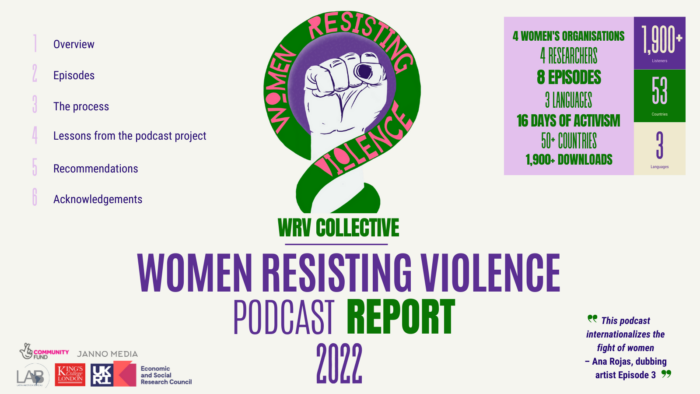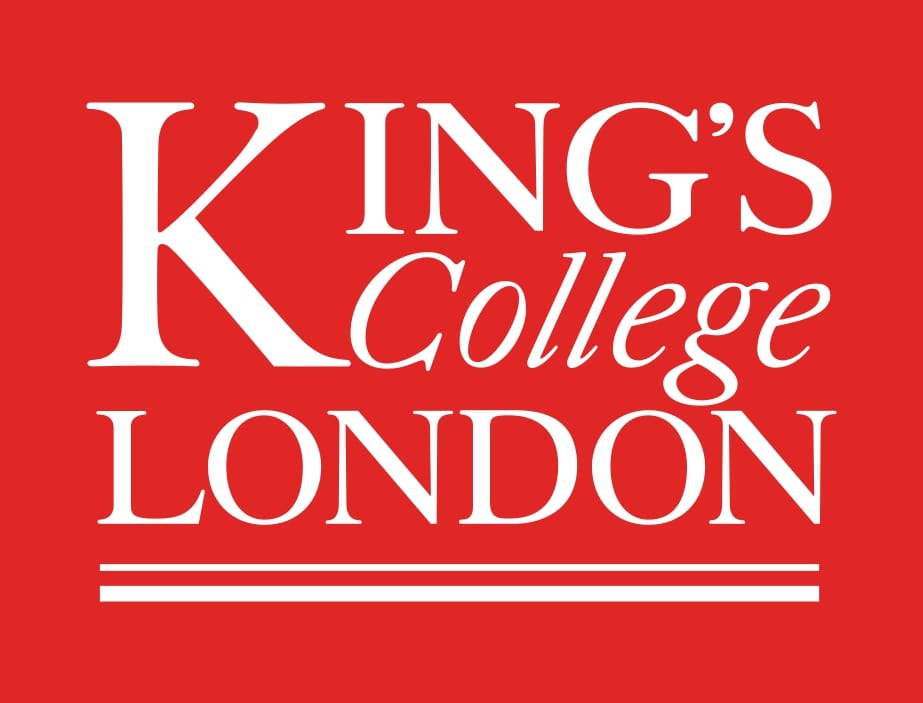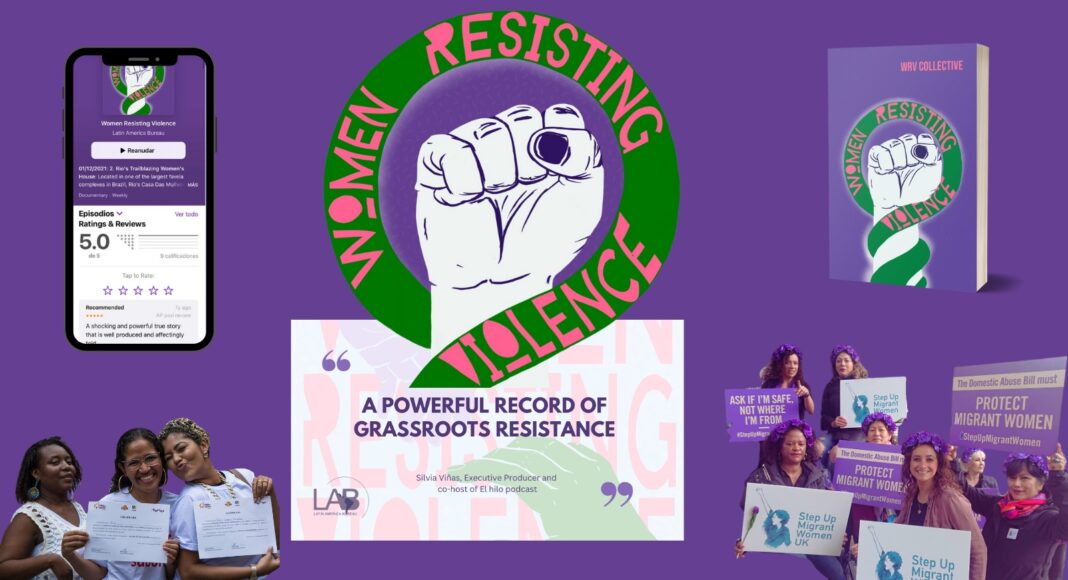In collaboration with King’s College London, LAB launched the ‘Women Resisting Gendered and Intersectional Violence’ project in January 2021. The project built on academic research projects (especially in Brazil, Peru, Guatemala, and among Latin Americans in the UK) as well as presenting new research with civil society organizations. It included the creation of the Women Resisting Violence (WRV) website and blog; seven multilingual episodes of the narrative WRV podcast; two international webinars; a policy briefing; and finally, a book, published and launched in November 2022. These outputs came about through a feminist and collaborative decision-making process that underpinned all the activities of the WRV Collective.
The project documented campaigns, community organising, and many other innovative ways in which Latin American women have responded to and led efforts to mitigate VAWG. One of the main aims of our project was to foreground the voices of Latin American women affected by VAWG in the region and among the diaspora living abroad, with a specific focus on the UK. The project highlighted the ways in which women have challenged gendered violence through resistance, resilience, and new proposals for transformation – ranging from grassroots political responses, public media campaigns and new technologies, to protests in the streets, performances, and artistic engagements.
The key messages from the project are that VAWG remains deeply intersectional in its disproportionate impact on poor women and girls in their diversity (Black, Indigenous, migrant, from urban and rural locations, from LGTBQ+ groups), and that VAWG is embedded in wider forms of structural violence, especially that perpetrated by the State.
The initial funding from King’s College London (ESRC Impact Acceleration Account) was for a policy and practice fellowship with LAB to facilitate sharing the research findings of two members of the WRV Collective who are academics at King’s. It allowed us to collaboratively create the multilingual podcast alongside an audio producer, engineers, interviewers, activists, translators, and dubbing artists. Additional funding was obtained from the National Lottery Community Fund, which allowed us to host an international webinar with women activists and audio producers on how podcasting can contribute to social change and to launch the book in London with speakers from leading women’s organizations and an exhibition from Afro-Colombian artist Lilophilia. It additionally allowed us to further promote and disseminate the book.
The writing of the book Women Resisting Violence: Voices and experiences from Latin America was not covered by this funding. The co-authors contributed their time to write the chapters and carry out interviews with collaborators, drawing on their own and others’ research, as well as the blogs we published on the website. We peer reviewed each other’s chapters in the editing process. The book is written in a non-academic style, making it accessible to a wider audience, and references and a bibliography are included that will be helpful to students and other researchers who want to follow up on particular aspects highlighted in different chapters. The references and bibliography are digitised alongside information about each chapter and related blog articles from the website and therefore easily available to consult digitally. LAB edited and published the book in partnership with Practical Action Publishing. It is available to buy in paperback, hardback, and e-book format on their website.
In a meeting to evaluate the WRV project, members of the collective agreed that it had been very successful in terms of value for money in creating a number and range of important outputs. With a small amount of funding – and a lot of care and dedication from our collective of researchers, writers, editors, producers, translators, and voice actors – we produced a high-quality podcast in three languages an easily navigable website showcasing the work of grassroots women’s groups, women’s networks, and international organizations against VAWG in 60 blog posts, and engaging international events. The project involved an impressive number of collaborators including contributors who wrote blogs and translated texts as well as interviewees who shared their stories.
Many new and important connections were made as we communicated through a wide range of media and networks (including European organisations fighting VAWG, audio producers following stories of social change, and arts-based activist migrant groups in London). Through these international ties, we put together a large database of organizations that will be helpful for future work. We also reached different audiences through using a range of media and connections: podcasting, events, webinars, social media, a blog, digital references, the physical book.
The podcast successfully achieved a wider impact for these stories through international networks and social media. This is thanks to its increased accessibility given the episodes were multilingual and available on all major podcasting platforms.
The series was released over the international 16 Days of Activism Against GBV in November 2021, contributing to raising public awareness of a range of issues and survivor/women-led solutions. It was downloaded in over 50 countries and was shortlisted for Best Documentary in the Amnesty International Media Awards 2022.
It is a tool of resistance, amplifying women’s political and social agency, and is used as lobbying material; as a campaigning and communications tool; and as a teaching resource for community groups, NGOs, and students. It supported the successful application for asylum abroad for a group of Central American women activists and may be used in sensitizing work with police around safe reporting for migrant women with insecure immigration status in the UK suffering abuse.

The podcasts proved a good vehicle for communication and sharing stories across continents and we will be looking for funding so that we can further develop the series. There are still many more stories to tell of women’s courage to overcome adversity, support each other, and fight for change in many different contexts.
In terms of next steps, in the WRV book we identified key policy recommendations that can be used for lobbying policymakers, and we have shared these through webinars and contact with networks such as Women in Development Europe [WIDE+], the UK GAD Network and the No More Foundation, among others.
The blog posts and book are written in English, so are less international and accessible than the podcast, however we have succeeded in raising some additional funds to translate the book into Spanish and Portuguese. We plan to distribute these editions through libraries and bookshops throughout Latin America. If you are a translator, publisher, or distributor with interest, please get in touch.
We plan to follow up with some of the organizations whose campaigns we highlighted in the project to find out about recent successes as well as the challenges they continue to face, and to share these as updates on the WRV blog.
In conclusion, the project was successful in bringing women together, internationalizing the fight against VAWG, raising awareness of Latin Americans’ campaigns against violence, and reaching a wide audience engaged with social issues. Translating the book into Spanish and Portuguese will further ensure the accessibility and reach of the project, in turn not only raising the profile of Latin American women activists outside of the region, but also within the continent, and allowing women participants to celebrate this collaboration in their own languages with colleagues, press, policymakers, and wider networks.
We’d like to thank our many generous contributors, our funders, and the brave organizations we collaborated with on this project.




